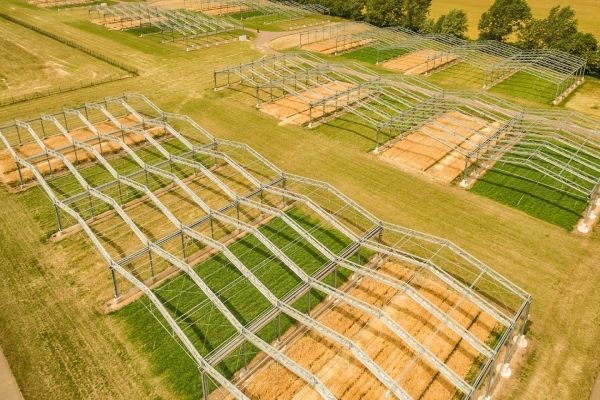When it comes to the impact of climate change on ecosystems, we still have large knowledge gaps. Most experiments are unrealistic because they do not correspond to projected climate scenarios for a specific region. As a result, we lack reliable data on what ecosystems might look like in the future, as a team of biodiversity researchers from Central Germany show in the journal "Global Change Biology". The team reviewed all experimental studies on the topic. The researchers are now calling for the introduction of common protocols for future experiments.
The facts that climate change is man-made and that it will alter ecosystems are indisputable. However, there is debate about its extent and its consequences. "In order to predict how plant communities will react to climate change and what ecosystems of the future will look like, we need realistic field experiments worldwide," says Humboldt Professor Tiffany M. Knight from Martin Luther University Halle-Wittenberg (MLU) and the Helmholtz Centre for Environmental Research (UFZ). She heads the group "Spatial Interaction Ecology" at the German Centre for Integrative Biodiversity Research (iDiv) Halle-Jena-Leipzig. According to Knight, field experiments are a necessary tool for understanding the effects of climate on plant communities. "Nature is complex and plant communities are structured by many interacting environmental factors. Experiments can specifically isolate the role of climate factors, such as precipitation and temperature," says Knight.
The researchers conducted an extensive literature review on the subject, searching for field experiments on the relationship between climate factors and plant communities. "In these experiments, temperature and precipitation are altered to investigate their effects on the plant community," explains Dr Lotte Korell, a member of Knight's research group and lead author of the study. The team was able to identify a total of 76 studies that manipulated either precipitation, temperature or both.
Read more at Martin Luther University Halle-Wittenberg
Image: In the Global Change Experimantal Facility (GCEF), a field experiment in Saxony-Anhalt operated by the Helmholtz Centre for Environmental Research (UFZ), scientists have been researching the consequences of the climate and land use changes to be expected in the future since 2013. (Credit: © André Künzelmann / UFZ)


